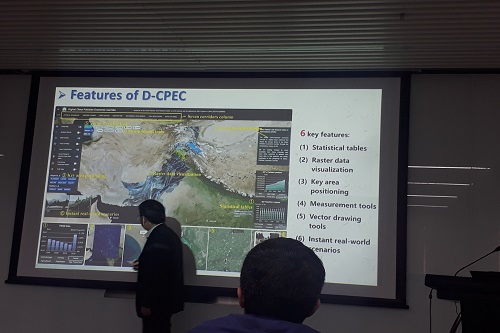Prof. Yu Yuan (Beijing Normal University, Beijing) addressed the theme of participatory governance enabled by the use of government data on 23 Sep. 2025 at XiongAn China
During my 2-Weeks training at XiongAn, Prof. Yu Yuan (Beijing Normal University, Beijing) addressed the theme of participatory governance enabled by the use of government data. Here are some interesting points from the session.

A lecture was held to discuss the government and citizen interaction in terms of government data usage. China's rapid urbanization-rising from 50% in 2007 to a projected 75% by 2050-has increased demand for responsive governance in areas such as air quality, waste management, greenery, traffic, vendors, and energy. Digital technologies are reshaping urban governance, raising the question of whether digitization serves citizens or merely cities. Central to this evolution is citizen participation in decision-making, bridging urban governance with public involvement. The Beijing 12345 hotline, first launched in 1984, exemplifies this approach, allowing citizens to make inquiries, complaints, suggestions, or give praise. Calls are either answered directly or transferred to relevant departments, creating a mechanism of cross-level collaboration, accountability, and citizen feedback.
The system also incorporates social sensing, using data on citizen demands, risk sentiment, and performance evaluation to improve governance responsiveness. Compared with New York's 311 system, Beijing's 12345 is more citizen-centric, emphasizing cross-level coordination and feedback loops, while New York's model relies more heavily on digitization and technology-driven processes. These practices, together with broader initiatives such as City Brain systems and smart city projects, highlight how China is leveraging digital platforms to connect governance structures with active citizen participation in urban management.
Context:A two weeks training titled "International Training Program on Policies and Applications of Government Data Governance in Belt and Road (B&D) Countries" (14-28 September, 2025) was held at XiongAn New Area, China. The training was hosted by the Department of International Cooperation of the Ministry of Science and Technology, organized by Institute of Scientific and Technical Information of China (ISTIC) and co-organized by UNESCO-IFAP China National Committee, UNESCO IFAP Information for Development Working Group (IDWG) and XiongAn Group Digital City Company.
The training included 14 participants from eight countries-China, Pakistan, Sri Lanka, Brazil, Kazakhstan, Zambia, Iran, and Indonesia-representing a wide range of expertise, including public administration, computer science, international relations, environmental science, data governance, industrial management, information science, and international communication.



